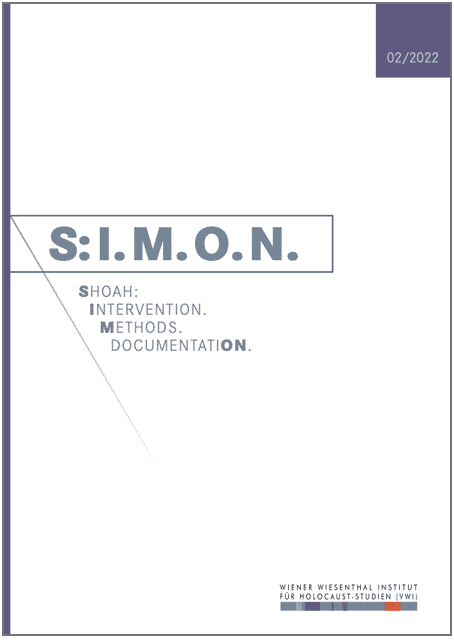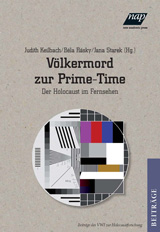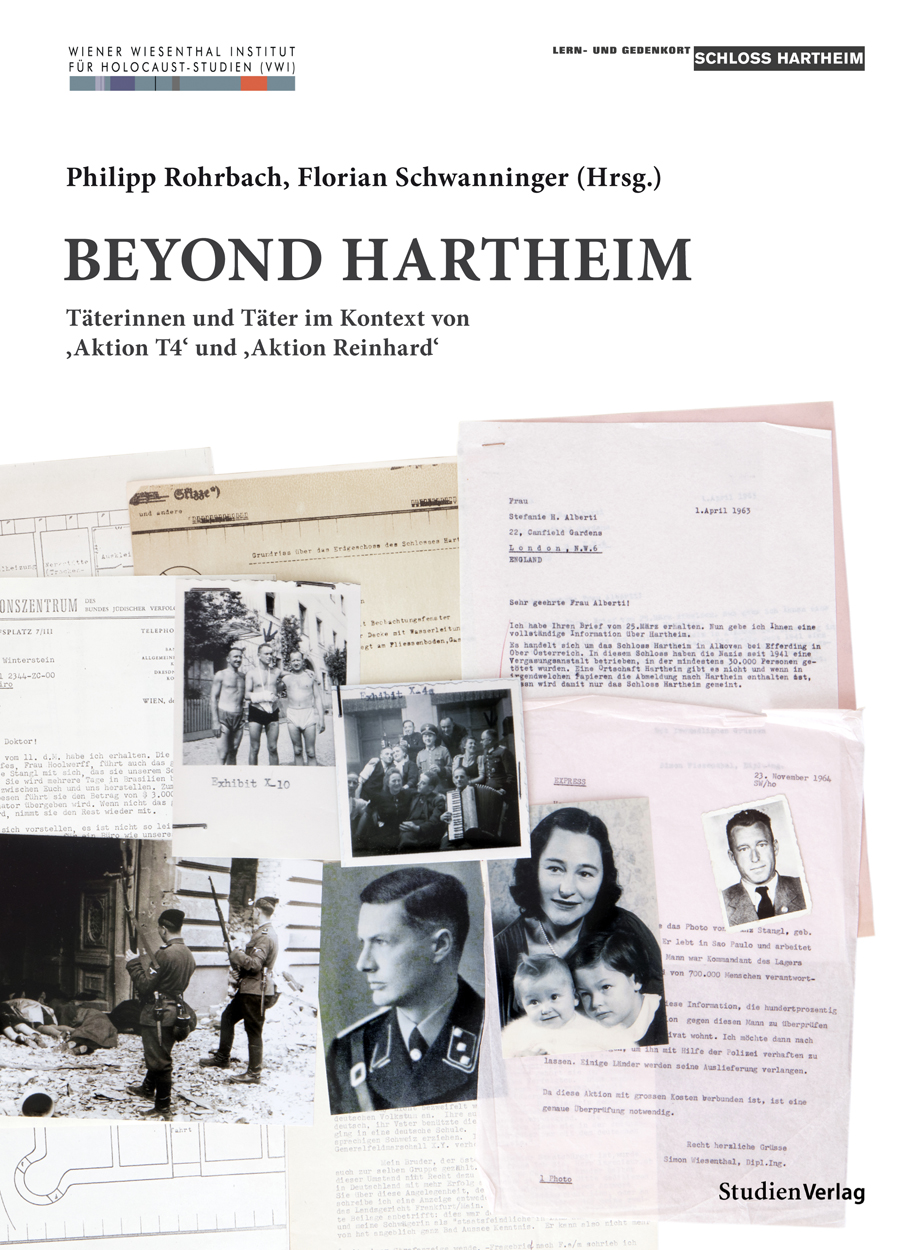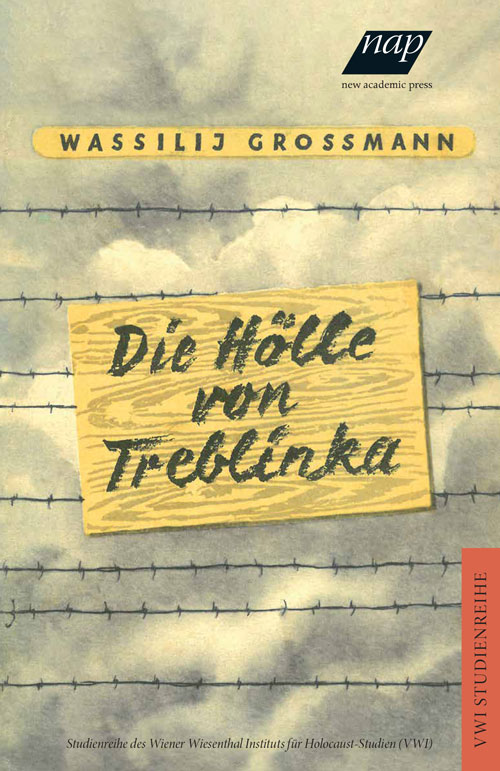News – Events – Calls
| 02. May 2024 18:30 Simon Wiesenthal LectureEdyta Gawron: Never Too Late to Remember, Never Too Late for Justice! Holocaust Research and Commemoration in Contemporary PolandIn 1994, Simon Wiesenthal received a doctorate honoris causa from the Jagiellonian University in Krakow for his lifelong quest for justice – half a century after he had been, for a short time, prisoner of the local Nazi Concentration Camp (KL) Plaszow. The 1990s were the decade when t...Weiterlesen... |
| 07. May 2024 00:00 - 04. June 2024 00:00 WorkshopDealing with Antisemitism in the Past and Present. Scientific Organisations and the State of Research in AustriaThis series of talks, presented by antisemitism experts from different organisations that research antisemitism using a variety of academic approaches, aims to provide a snapshot of historical evolutions, current events, prevalent perceptions and declared (and undeclared) attitudes. I...Weiterlesen... |
| 14. May 2024 08:45 - 16. May 2024 16:30 TagungQuantifying the Holocaust. Classifying, Counting, Modeling: What Contribution to Holocaust History? About the conference: https://quantiholocaust.sciencesconf.org/ Programme timed on the basis of 15-minute presentations + 15-minute discussions; short breaks and lunches Day 1 Tuesday, 14 May 2024Centre Malher (9 rue Malher 75004 Paris/amphi Dupuis) From 8.45 am: Welcome9.30 am...Weiterlesen... |
| 24. May 2024 18:00 InterventionLange Nacht der Forschung 20242024 öffnet das Wiener Wiesenthal Institut für Holocaust-Studien (VWI) in der Langen Nacht der Forschung wieder seine Tore und lädt Interessierte in seine Räumlichkeiten am Rabensteig 3 ein. Im Rahmen von Vorträgen, Podiumsdiskussionen und Präsentationen bieten VWI-Team und Gäste Einb...Weiterlesen... |
| 04. June 2024 13:00 VWI invites/goes to...Workshop: Social History of the Shoah. Everyday Life, Space and Time VWI invites the Department of Contemporary History, University of Vienna 13:00Hannah Riedler (VWI Junior Fellow)Between Deportation, Forced Labour and Germanisation. The Umwandererzentralstelle in Occupied Poland 1939–1941Commented by Kerstin von Lingen 13:40...Weiterlesen... |
| 13. June 2024 18:30 Simon Wiesenthal LectureJack Fairweather: The Trials of Fritz Bauer. How Life as a Gay Jewish Socialist under the Nazis Shaped His Quest for JusticeFritz Bauer’s daring mission to bring Adolf Eichmann and the perpetrators of Auschwitz to justice forced Germany and the world to pay attention to the crimes of the Holocaust. Bauer’s moral courage in speaking out in a society that had not yet come to terms with its past, which he him...Weiterlesen... |
Schließtage der VWI-Bibliothek – Closing days of the VWI Library
Die Bibliothek ist in der Woche von 29. Apri bis 3. Mai 2024 geschlossen.
The library will be closed during the week of 29 April to 3 May 2024.
Obituary: Hella Pick (1929–2024)
 “1939: a Kindertransport refugee designated as an ‘Enemy Alien’. 2000: Commander of the British Empire. 2018: first an Honorary Doctorate from Sussex University and then the accolade of a new identity as a BBC podcast destined to remain for all eternity on a distant desert island. These are markers in a colourful life and a long career that offered a role model for women in journalism. It has been quite a journey.” (Hella Pick, Invisible Walls, p. 293)
“1939: a Kindertransport refugee designated as an ‘Enemy Alien’. 2000: Commander of the British Empire. 2018: first an Honorary Doctorate from Sussex University and then the accolade of a new identity as a BBC podcast destined to remain for all eternity on a distant desert island. These are markers in a colourful life and a long career that offered a role model for women in journalism. It has been quite a journey.” (Hella Pick, Invisible Walls, p. 293)
Hella Pick died in London on the night of 4 April at the age of 94. As a foreign correspondent for the Guardian, she reported on turning points in the history of the 20th century – from the end of British colonial rule in West Africa, the highlights of the US civil rights movement and the student protests in Paris in 1968 to the end of the Cold War. Her memoirs read like a Who’s Who of the 20th century and provide insights into the struggle for recognition as a female journalist in a male-dominated field of work.
The Vienna Wiesenthal Institute for Holocaust Studies mourns the loss of the journalist, Wiesenthal biographer, contemporary witness, and advocate against forgetting. We remember Hella Pick’s visits, most recently in November 2022, when she presented her autobiography Invisible Walls. A Journalist in Search of Her Life.
It has been quite a journey.
Photo: © VWI
EHRI Workshop and Microarchives in Austria
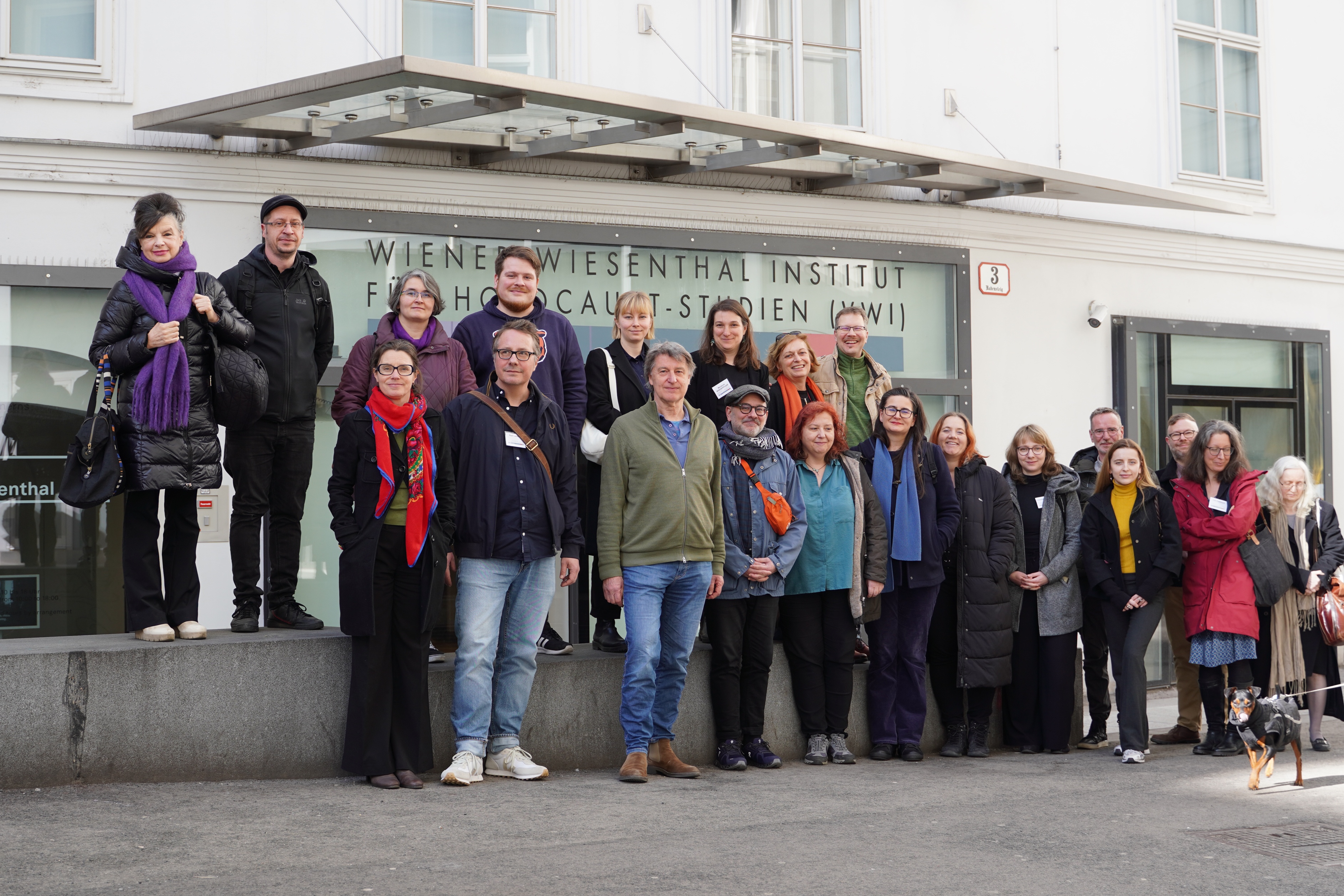 The full-day workshop "EHRI and Microarchives in Austria" took place at the Vienna Wiesenthal Institute for Holocaust Studies (VWI) on 4 March 2024. The Institute presented EHRI's plans to improve support for microarchives and invited Austrian microarchive owners and experts to discuss the opportunities and challenges of collaboration. The microarchive owners shared their wishes and requirements with the VWI-EHRI team, which may lead to further cooperation.
The full-day workshop "EHRI and Microarchives in Austria" took place at the Vienna Wiesenthal Institute for Holocaust Studies (VWI) on 4 March 2024. The Institute presented EHRI's plans to improve support for microarchives and invited Austrian microarchive owners and experts to discuss the opportunities and challenges of collaboration. The microarchive owners shared their wishes and requirements with the VWI-EHRI team, which may lead to further cooperation.
Statement by the Vienna Wiesenthal Institute for Holocaust Studies (VWI) On the Current Rise in Antisemitism Worldwide
The VWI condemns the drastic rise in anti-Semitic incidents of verbal and physical violence and the global threat to Jews following the terrorist attacks by Hamas on Israeli residential areas on 7 October 2023. On the night of 1 November 2023, the ceremonial hall in the Jewish section of Vienna’s Central Cemetery was set on fire.
New EHRI Podcast: A Sunflower for Simon Wiesenthal
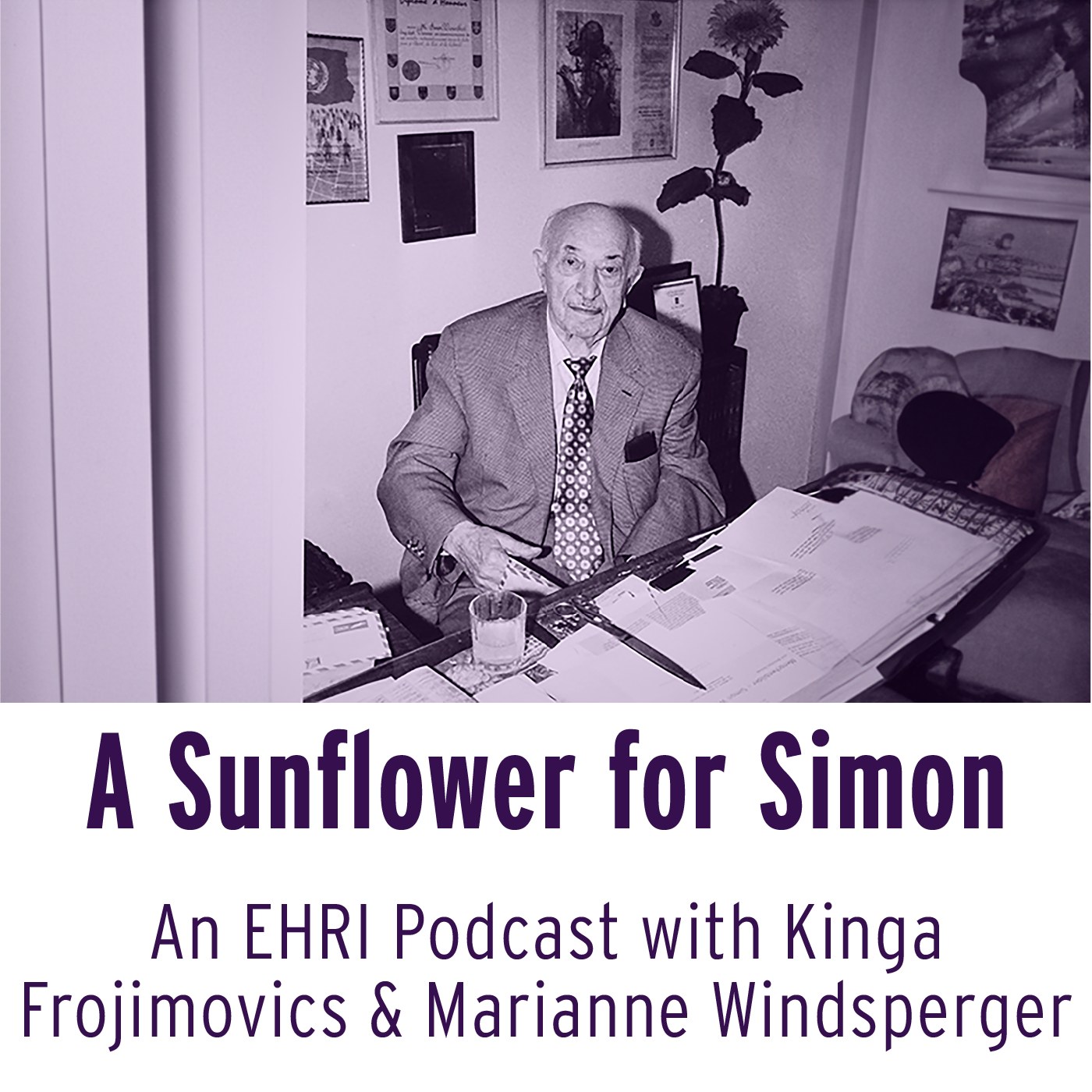 The first episode of the second season of the EHRI Podcast "For the Living and the Dead. Traces of the Holocaust“ has just launched. This episode is called "A Sunflower for Simon". Katharina Freise talks to VWI's Marianne Windsperger and Kinga Frojimovics about Simon Wiesenthal’s sunflowers, real ones, or artificial and made from paper or any other material. In 1969, Holocaust survivor and author Simon Wiesenthal wrote The Sunflower. On the Possibilities and Limits of Forgiveness. In this book, he recounted his experience with a mortally wounded Nazi soldier during World War II, and then asked prominent figures from politics, science and theology the question about what they would do under the circumstance.
The first episode of the second season of the EHRI Podcast "For the Living and the Dead. Traces of the Holocaust“ has just launched. This episode is called "A Sunflower for Simon". Katharina Freise talks to VWI's Marianne Windsperger and Kinga Frojimovics about Simon Wiesenthal’s sunflowers, real ones, or artificial and made from paper or any other material. In 1969, Holocaust survivor and author Simon Wiesenthal wrote The Sunflower. On the Possibilities and Limits of Forgiveness. In this book, he recounted his experience with a mortally wounded Nazi soldier during World War II, and then asked prominent figures from politics, science and theology the question about what they would do under the circumstance.
The “Sunflower” in the title referred to Wiesenthal's observation of a German military cemetery, where he saw a sunflower on each grave, while he was imprisoned in the Janowska concentration camp near Lviv and feared for his own body to end up in an unmarked mass grave.
The book touched many people, some of whom then expressed their emotions by sending sunflowers, real or crafted, to Wiesenthal’s office.
Listen to the episode on Buzzsprout, Spotify, Apple Podcasts, Google Podcasts or on the webpage: https://www.ehri-project.eu/podcast-episode-sunflower-simon.
Was geschah in der Ankerbrotfabrik während der NS-Zeit? Ein Inselmilieu-Podcast
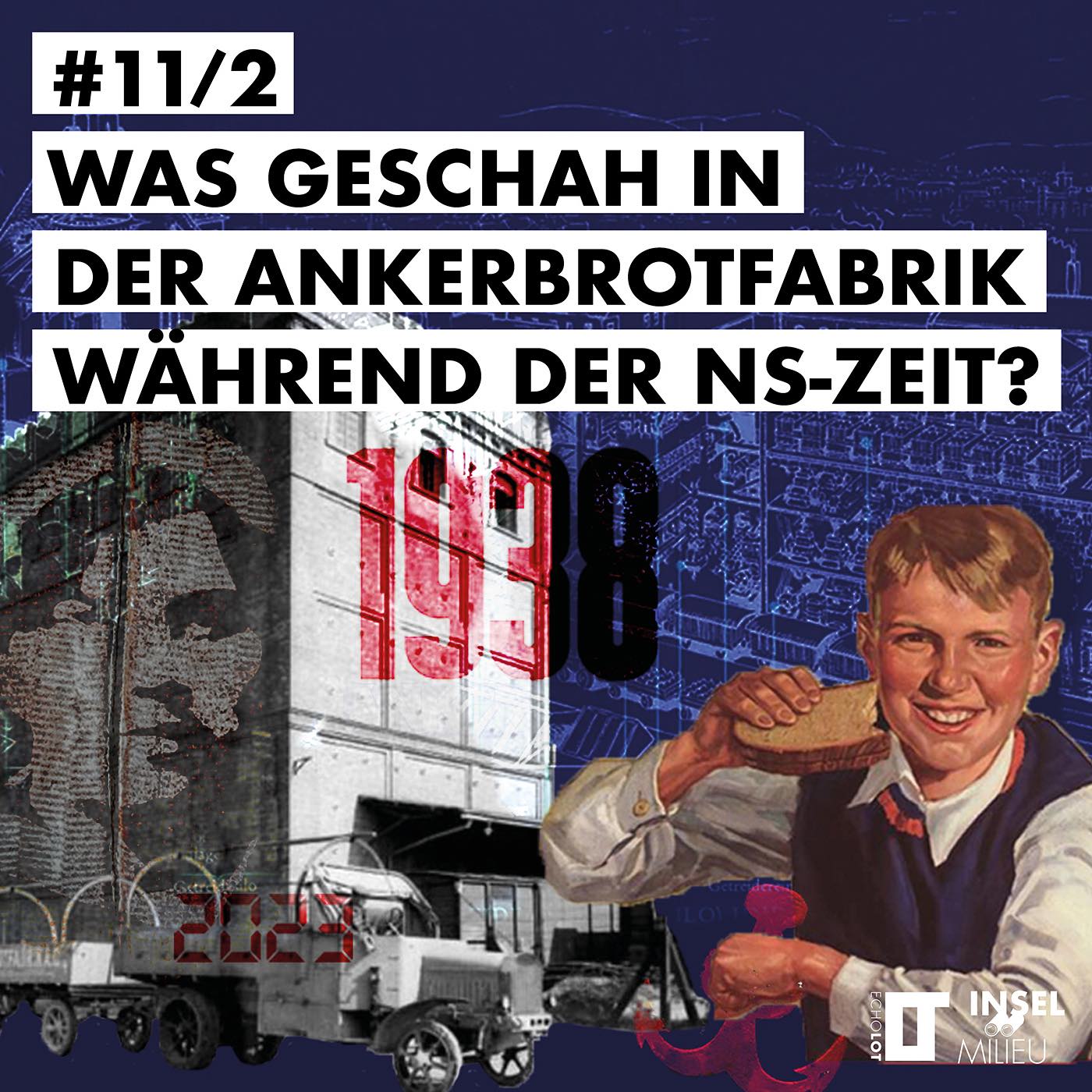 Inselmileu Reportage hat einen zweiteiligen Podcast über die Ankerbrotfabrik während der NS-Zeit produziert. Teil eins der Doppelfolge befasst sich mit der Arisierung und dem späteren Umgang des Unternehmens mit der NS-Geschichte bzw. deren Ausblendung. Die zweite Folge – für die der wissenschaftliche Mitarbeiter des VWI Philipp Rohrbach sowie Direktor Jochen Böhler interviewt wurden – widmet sich den Verstrickungen der Vorfahren vieler Österreicher:innen in die Verbrechen der NS-Zeit sowie ungarisch-jüdischer Zwangsarbeit in der Ankerbrotfabrik, die bis heute wenig thematisiert wurde. Die Inhalte des Gesprächs basieren unter anderem auf den Recherchen folgender VWI-Projekte zu ungarisch-jüdischer Zwangsarbeit 1944/45:
Inselmileu Reportage hat einen zweiteiligen Podcast über die Ankerbrotfabrik während der NS-Zeit produziert. Teil eins der Doppelfolge befasst sich mit der Arisierung und dem späteren Umgang des Unternehmens mit der NS-Geschichte bzw. deren Ausblendung. Die zweite Folge – für die der wissenschaftliche Mitarbeiter des VWI Philipp Rohrbach sowie Direktor Jochen Böhler interviewt wurden – widmet sich den Verstrickungen der Vorfahren vieler Österreicher:innen in die Verbrechen der NS-Zeit sowie ungarisch-jüdischer Zwangsarbeit in der Ankerbrotfabrik, die bis heute wenig thematisiert wurde. Die Inhalte des Gesprächs basieren unter anderem auf den Recherchen folgender VWI-Projekte zu ungarisch-jüdischer Zwangsarbeit 1944/45:
Ungarisch-jüdische Zwangsarbeit in Wien 1944/45
Projektbeschreibung
Kinga Frojimovics and Éva Kovács: Jews in a ‘Judenrein’ City: Hungarian Jewish Slave Laborers in Vienna (1944–1945)
Anzuhören auf: Spotify, Apple Podcasts oder auf der offiziellen Website.
Now online: Wiesenthal in Linz - A Virtual Exhibition
We are happy to announce the publication of our newest project: Wiesenthal in Linz - A Virtual Exhibition. The online exhibition presents the so-called “Linz documents” - a set of documents that form the basis of the Jewish Documentation Centre's (JDC) archival collection. Like many other Holocaust-related Jewish collections after WWII, the documents are highly dispersed: While the majority of the DP camp files are held by the Yad Vashem Archives in Jerusalem, the six folders Simon Wiesenthal brought to Vienna himself are located in the archives of the Vienna Wiesenthal Institute for Holocaust Studies (VWI). Other relevant documents can be found in the archives of the Jewish communities in Linz and Vienna, in the DP camp collection of the YIVO Institute in New York, and in the archives of “The Joint”.
Wiesenthal in Linz - A Virtual Exhibition is the result of a three-year project of the VWI funded by the Claims Conference. The goal was to start reconnecting, at least virtually, this closely related collection of documents from Simon Wiesenthal’s time in Linz and to provide a single place to find information on the history and characteristics of the material for researchers.
Gender Equality Plan (GEP) 2023-2026 for the VWI
The Vienna Wiesenthal Institute for Holocaust Studies (VWI) is dedicated to researching and documenting anti-Semitism, racism and the Holocaust. In its educational activities, it promotes awareness and understanding of human dignity, strengthens the willingness to take responsibility for the social community as well as personal civil courage. The VWI strives to reflect gender equality and an appreciation of diversity in its organisational structure, its academic and programmatic work as well as in its representation and external communication.
Appreciation for diversity is reflected throughout the entire organisation in mindful and respectful interaction with one another. It is also expressed in the endeavour to integrate diversity into the personnel structure and in the selection of fellows. Finally, it helps to reflect the needs of people of different genders, ethnicities, religious traditions, social class, mental and physical abilities, language and regionality in research, teaching and communication. In line with the mission of the VWI, vigilance against anti-Semitism, racism and all forms of discrimination is an important ethical principle of everyday communication.
To ensure this mission, the VWI is committed to a comprehensive Gender Equality Plan, which can now be read in German here.






